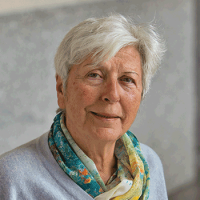Violent Non-State Actors and COVID-19: Challenge or Opportunity?
Has the pandemic created challenges or opportunities for non-state actors across the globe? Join us on May 26 for a look at how terrorist groups, transnational crime organizations, gangs and cartels have reacted to coronavirus and what the future may hold for their operations.
Selected Quotes
Duncan Wood
“In Mexico we’ve seen three major phenomenon. The pandemic has impacted drug supply chains, violence and the legitimacy of drug cartels in the country.”
“Unlike other parts of the world, in Mexico violence has gone up throughout the pandemic. We have seen rising levels of violence and we see a jump in homicides in contrast with April from last year. The government has tried to put a positive spin on these numbers, but overall, we are seeing a lot of violence in the country. Over 6,000 people were killed in this period, murders have risen again despite social distancing measures.”
“The Jalisco Nueva Generación Cartel is focusing on getting local support: this helps when the army comes looking for them and helps in getting local residents to support you in terms of security. These factors present another blow to the legitimacy of the Mexican government. This is not great for bilateral relations either. The relationship has come under a number of strains during the pandemic to deal with the bigger question of [drug] supply chains, and prior to the pandemic there was increased pressure from Attorney-General Barr to get the Mexican government to do more to stop the flow of drugs. Having a such high-profile visibility of cartels giving aid to local populations and the widespread of reporting in media in the U.S. and the world suggests that U.S. authorities are doubly concerned about the deterioration of governance in Mexico.”
“As in other parts of the world, during the pandemic we have seen in Mexico an increase in domestic violence and abuse. A big challenge for the government is that the Mexican president in his daily press briefings has denied that there is domestic violence in Mexico. He has constantly stated that the pandemic has been an opportunity for family reunions.”
“Femicide is a problem that stems from organized crime, it’s a broader problem in society and the social model that is being employed in Mexico. It is a challenge for the legitimacy of this administration, which claims to represent the people of Mexico but seems to be denying the problem that is impacting more than 50 percent of the population.”
Eric L. Olson
“Organized crime works best where the state is absent or weakest…It’s really important to look at how the state and absence of the state is providing new opportunities for organized crime to not only continue their work but to event expand it to some areas…where the state is now being diverted or their attention is being focused elsewhere. Police and security forces are concentrating on the lockdowns and health measures so there are new spaces opening up, new opportunities for organized crime to expand.”
“Slowing of trade generally has affected precursor chemicals that are necessary for the production of fentanyl, methamphetamines and other synthetic opioids. That impact has been felt more strongly as trade between China and the U.S. has decreased in the context of the global pandemic. It has affected those precursors coming into Mexico.”
“The U.S.-Mexico border has changed significantly, but that is true also in the borders in Central America, especially the borders between El Salvador and its neighbors Guatemala, Honduras, and between Nicaragua and Costa Rica where these border crossings are also affecting legitimate trade, but since drugs are often contained in that legitimate trade this is affecting trafficking as well.”
“Reductions in other legitimate traffic, be it air, maritime, or land, make it easier to monitor and spot illicit movements as well...This will have a particularly strong impact on cocaine trafficking because 88 percent of the traffic from the Andes region to the United States is by sea or maritime routes. There has been a major new initiative by SOUTHCOM to increase patrolling in the Eastern Caribbean and along the Venezuelan area.”
Louis Isobel Shelley
“One of the things that we also need to think about is how does state policy and economic policy affect organized crime? It is not just a question of state weakness, but how does the state go in to help the business community; and in Russia today, the present failure of the state to bailout small businesses—and it is favoring the oligarchs—may result in small business owners becoming indebted to organized crime.”
“Organized crime is rich in cash, and this is a phenomenon around the world in that they are often running cash-rich business and cash-based businesses. And so when a crisis comes and people are in need of cash, they then are forced to turn to organized crime to keep their businesses afloat. Sometimes that’s a prelude to organized crime influence of their business, and sometimes it is a prelude to organized crime absolutely taking over the business.”
“One of the concerns we need to be thinking about is: are states, are countries going to be so desperate for income at the present time that they will not crack down on these illicit websites, platforms that are helping bring money into their country when they so desperately need money from exports.”
“We have launched so much of our relief programs and assistance programs in the cyber world without thinking enough about how clever our transnational criminals are, and how much they’ve been preparing for this day by stealing and trading identities…Having a decentralized system in the United States with very different degrees of readiness to deal with cybercrime makes us all the more vulnerable.”
Marina Ottaway
“For the violent non-state actors, the virus has been seen more of an opportunity than a hindrance.”
“The other conflict that has probably not escalated, but certainly has not decreased because of the coronavirus pandemic, is Yemen. Things in Yemen are as bad as they have ever been, and they have been pretty bad all along because [of] the fighting that has already created an epidemic of cholera and has already created a very high level of starvation or at least extreme malnutrition because for a large part of the population access to food is nonexistent.”
“[The] pandemic has hit Lebanon at a time when it was already...in a very deep economic crisis and there are a lot of people who are literally starving. And what you are seeing now, beginning in Tripoli but also spreading a little bit, [is that] a very different type of crowds are taking to the streets: people who are not, you know, the students and the young people and so on, but essentially workers and people who don’t have food for their family and there is very definitely a radical tone, you know, a tone of class warfare to this.”
Michael Kugelman
“For years the Taliban in Afghanistan has actually pitched itself, in its published propaganda and direct appeals to local communities, as a better alternative to the Afghan government. A movement that can provide basic services and better governance, including healthcare, than the corrupt and hapless and feckless regimes in Kabul.”
“To this question of what COVID-19 means for the Taliban, my main assertion is that the coronavirus poses a small challenge for the Taliban, but it offers a much larger opportunity…There is reason to fear that the coronavirus is hitting Afghanistan quite hard...but I would not overstate the challenge that the coronavirus poses to the Taliban’s fight. The Taliban might be just as susceptible to the pandemic as anyone else...but it’s important to keep in mind just how strong and confident and emboldened the Taliban is. This is a group that has pushed back really hard against beleaguered Afghan counter-insurgency forces that are also vulnerable to the virus, and above all the Taliban is a group that knows that U.S. forces are on their way out.”
“One of the big disappointments for many, though it really shouldn’t be a surprise, is that after the UN Secretary-General issued an appeal for armed anti-state troops around the world to lay down arms because of the pandemic, hardly any of them did. And that’s no surprise: for a group like the Taliban, the deployment violence and the intensification of that violence is a powerful tool of leverage, and it’s not going to easily give it up.”
Introduction

Moderator

Panelists


Director of Policy and Strategic Initiatives, Seattle International Foundation

Professor, School of Public Affairs

Former Senior Research Associate and Head of the Middle East Program, Carnegie Endowment for International Peace
Hosted By

Congressional Relations
The Wilson Center’s office of Congressional Relations works to maintain a vibrant relationship with Members of Congress and their staffs. We organize and run a series of educational programs led by Wilson Center experts, ranging from seminars to private briefings, with the purpose of increasing congressional staffers’ knowledge of foreign policy. We also coordinate outreach to Capitol Hill, including testimonies by Wilson Center scholars and briefings specifically for Members of Congress. Read more


Kennan Institute
The Kennan Institute is the premier US center for advanced research on Eurasia and the oldest and largest regional program at the Woodrow Wilson International Center for Scholars. The Kennan Institute is committed to improving American understanding of Russia, Ukraine, Central Asia, the South Caucasus, and the surrounding region through research and exchange. Read more


Indo-Pacific Program
The Indo-Pacific Program promotes policy debate and intellectual discussions on US interests in the Asia-Pacific as well as political, economic, security, and social issues relating to the world’s most populous and economically dynamic region. Read more


Mexico Institute
The Mexico Institute seeks to improve understanding, communication, and cooperation between Mexico and the United States by promoting original research, encouraging public discussion, and proposing policy options for enhancing the bilateral relationship. A binational Advisory Board, chaired by Luis Téllez and Earl Anthony Wayne, oversees the work of the Mexico Institute. Read more


Latin America Program
The Wilson Center’s prestigious Latin America Program provides non-partisan expertise to a broad community of decision makers in the United States and Latin America on critical policy issues facing the Hemisphere. The Program provides insightful and actionable research for policymakers, private sector leaders, journalists, and public intellectuals in the United States and Latin America. To bridge the gap between scholarship and policy action, it fosters new inquiry, sponsors high-level public and private meetings among multiple stakeholders, and explores policy options to improve outcomes for citizens throughout the Americas. Drawing on the Wilson Center’s strength as the nation’s key non-partisan policy forum, the Program serves as a trusted source of analysis and a vital point of contact between the worlds of scholarship and action. Read more


Middle East Program
The Wilson Center’s Middle East Program serves as a crucial resource for the policymaking community and beyond, providing analyses and research that helps inform US foreign policymaking, stimulates public debate, and expands knowledge about issues in the wider Middle East and North Africa (MENA) region. Read more
